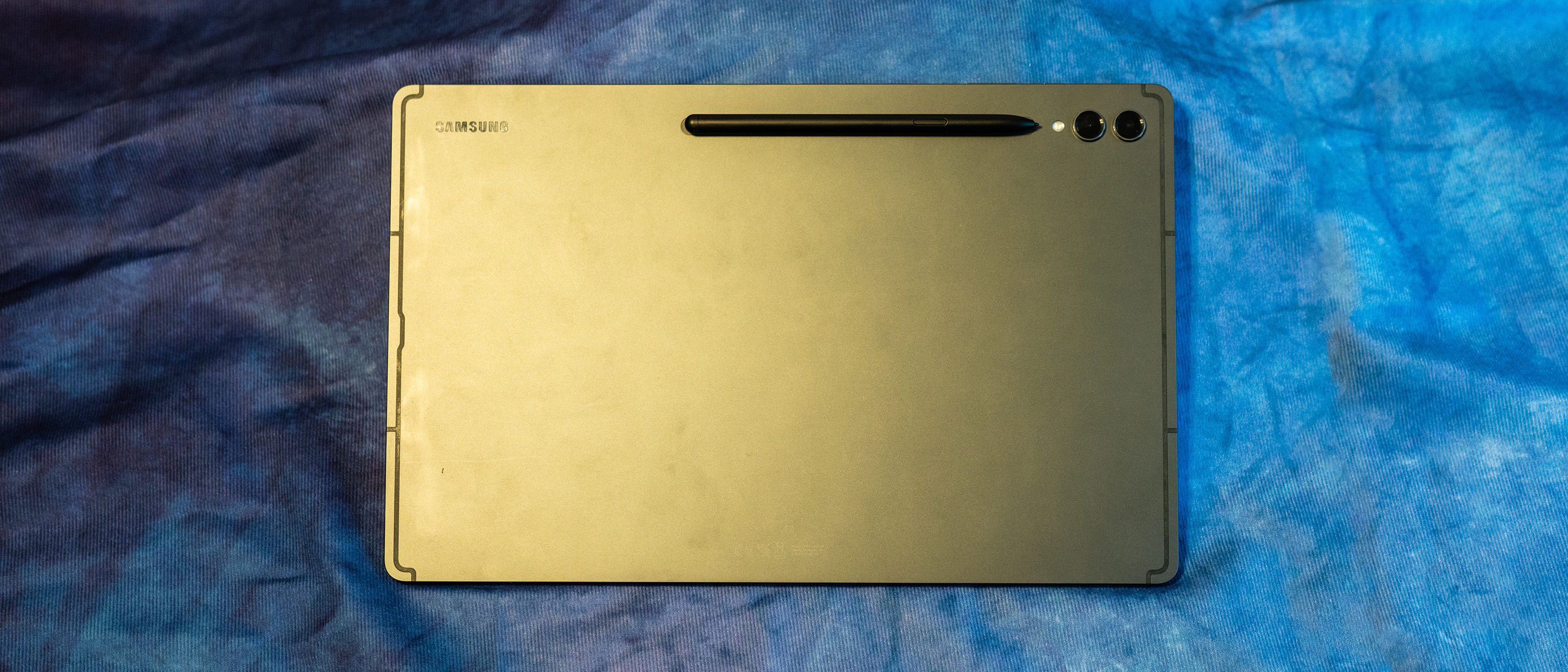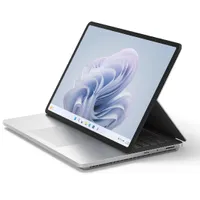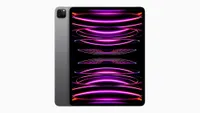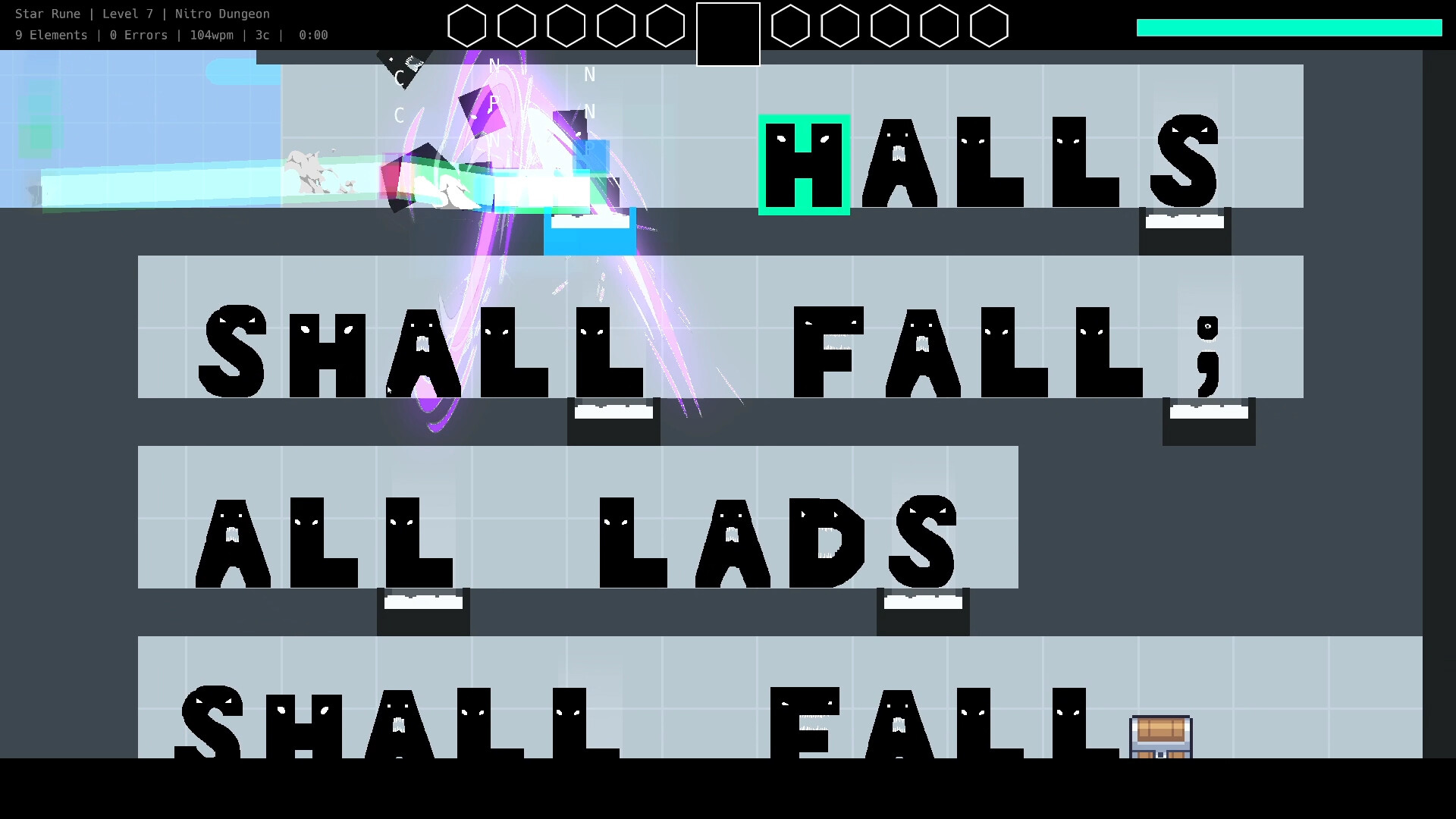Our Verdict
Large and bright, with a wonderful screen, the Galaxy Tab S9 Ultra wants to be so much more than a media consumption device, and nearly manages it. There's a lot to like here for creative pros, but you have to be prepared to accept the Android software available.
For
- Large and powerful
- Great screen
- S-Pen stylus
Against
- Android software can be limiting
- Screen too wide for tiled apps
Why you can trust Creative Bloq
A 14.6-inch touchscreen on a tablet just 5.5mm thick is quite a thing to hold. It’s about the size of a printed magazine (remember those?) but twice as heavy, thick enough to represent about 128 glossy full-colour pages but capable of containing the whole of human knowledge, or at least as much as you can get through before the battery gives out.
Even the box feels slender - there's no charger included, but you do get a stylus - but there's also an elephant. You can’t make a tablet like this and not have it compared to another large tablet that ends with ‘Pro’, especially when you want to charge more than £1,000 for it. With desktop-class processors and a gorgeous mini-LED screen (the new OLED-equipped M4 iPad Pro would be an unfair comparison, as it was announced well after Samsung’s release) Apple’s big slate attracts creatives, so can the Galaxy do the same and become a future-proof iPad alternative? The answer comes down to the software.
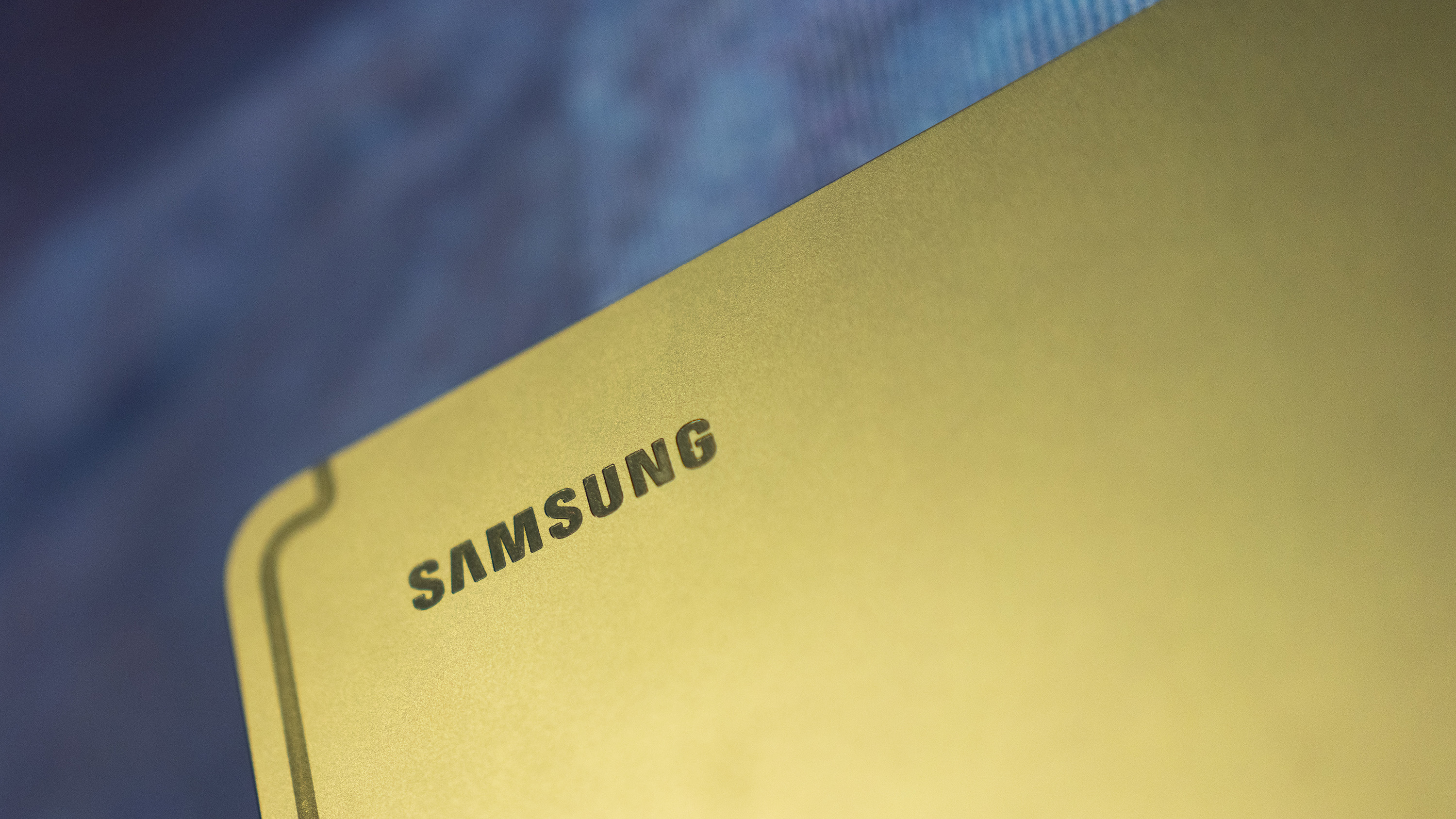
Samsung Galaxy Tab S9 Ultra: Key specifications
| Chipset: | Snapdragon 8 Gen 2 |
| RAM: | 12GB |
| Storage: | 256GB |
| OS: | Android 14 (One UI 6) |
| Screen: | 14.6in AMOLED, 2960 x 1848, up to 120Hz |
| Rear cameras: | 13MP main, 8MP ultrawide |
| Front cameras: | 12MP main, 12MP ultrawide |
| Connectivity: | Wi-Fi 6, Bluetooth 5.3, 5G (optional), USB 3.2 Gen 1 Type-C |
| Battery: | 11,200mAh |
| Dimensions: | 208.6 x 326.4 x 5.5mm |
| Weight: | 732g |
Design and build
With its wide aspect ratio and thin bezel, the Galaxy Tab S9 Ultra could be mistaken for a portable monitor, but there's no HDMI input socket here, just a single USB-C port, four speakers, plus SIM (for optional 5G) and microSD slots. It also gets a special port and some magnets for attaching to one of Samsung’s Book Cover keyboards, which we weren’t sent but combines with DeX mode, Samsung’s clever desktop-like skin for Android, to create something almost but not quite like a laptop.
What is most exciting about the S9 Ultra is the screen. It’s laptop-sized at 14.6in, and has a wider aspect ratio than that found on iPads. It’s also a bright AMOLED, with a resolution that’s less than 4K but more than 1440p - 3K, perhaps - that’s just beautiful for watching video on. It’s a magnificent thing, able to show a full 16:9 movie without black bars, or the length of a vertically scrolling website, better than an iPad can, but if you try to do anything else it can begin to feel squashed. You’ll need to use Bluetooth for audio too, due to the lack of a headphone jack.
Being light, stiff, and not too thick (plus with a recess on the back for magnetically attaching the stylus, which beats Apple’s side-mounted solution but could make it tricky to put in a case, the Tab S9 Ultra feels nicely built and is easy enough to slip in a bag, as long as it’s big enough.
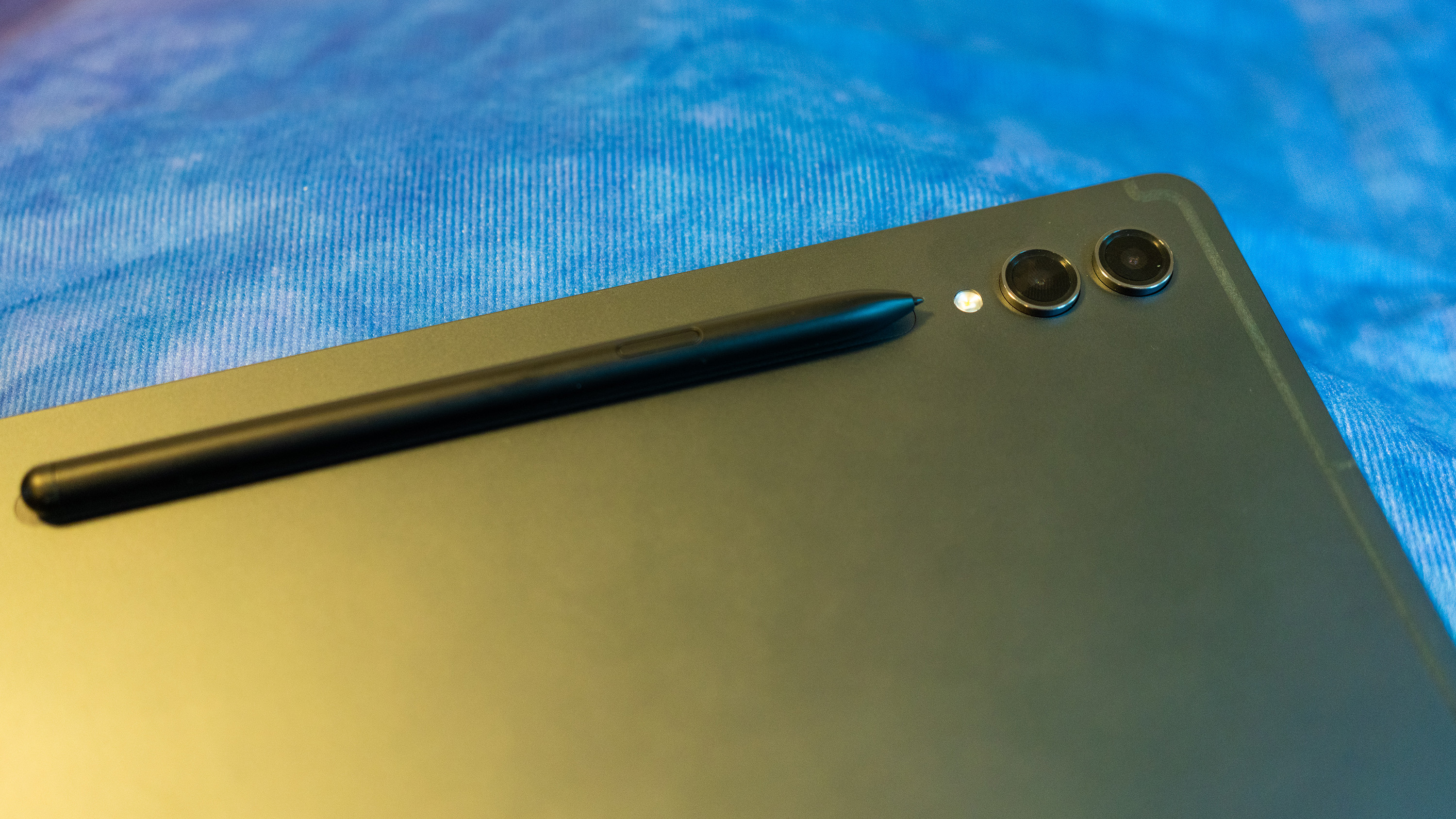
Features and performance
Tablets such as this live and die by their software, and while Android is an excellent mobile operating system its creative options can feel more limited than those of iPadOS. There's a version of Lightroom, of course, plus Photoshop Express or Sketch, and Premiere Rush, but there's no Procreate, Affinity, or the full(ish) versions of Illustrator and Photoshop we see on iPad.
You have to look elsewhere, to LumaFusion, Infinite Painter, Krita or Autodesk Sketchbook, which can take some getting used to if you’re accustomed to working some other way. The updated S-Pen stylus provided with the Tab S9 Ultra is excellent, however, with some great feedback between it and the screen.
Daily design news, reviews, how-tos and more, as picked by the editors.
The Tab S9 Pro outclasses the Huawei MatePad Pro 13.2 in terms of benchmark performance, evidence of the Snapdragon chipset on which it’s based, but that tablet is cheaper and has an OLED screen, though the nature of its app support (with no Google Play Store) means software is harder to come by. The Tab is also beaten by Samsung’s own Galaxy S24 Ultra, especially in its GPU scores. The phone has a newer chipset, an S-Pen stylus, and DeX mode, but can’t match the tablet for screen size.
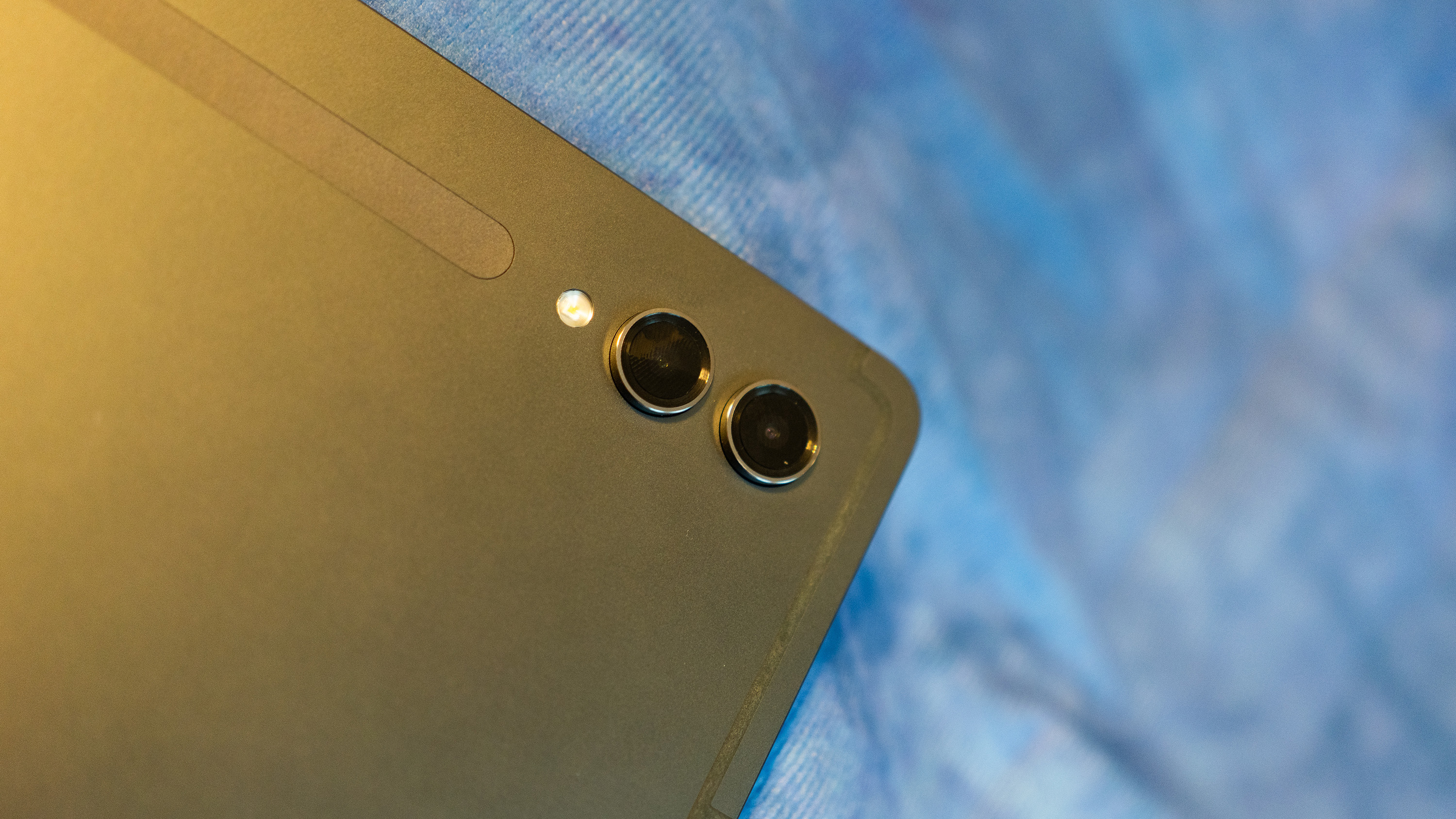
A tablet is a suboptimal device with which to take photos, and, understandably, Samsung has skimped on the snappers here. The ultrawide lenses are nice additions, but it perhaps makes more sense on the front, where it can be used for group video calls, than it does on the back - few will be using it to take in the entire majesty of a cathedral, for example. Image quality is sharp enough, but the cameras in your phone are probably better, and the Tab S9 Ultra makes a better companion for a mirrorless than it does a photo taker in its own right.
The Galaxy Tab’s initial setup procedure looks a lot like Windows 11’s, and it’s clear from the processing grunt that’s been levered inside that this is a tablet designed for some serious work instead of Netflix (though note that there is no Dolby Vision support, so you won’t be getting HDR from that particular app). What it’s very good at is multitasking, and Samsung’s DeX mode is a better choice for PC-like tasks than Apple’s Stage Manage. Hooking the Tab S9 up to a monitor and keyboard gives you a usable touchscreen laptop with Google Docs and browser windows tiled across the screen. Its narrow aspect ratio does come back to haunt it a bit here, however, as placing apps side by side leaves them very squat, and if there's enough interface you’re left with less of your work visible. If you can find a way to support it in a portrait orientation, it makes an excellent word-processing machine.
Price
There's no getting away from the fact that the Galaxy Tab S9 is the same price as a lot of laptops. You can get a MacBook Air M3 for the same price, or a 13-inch iPad Pro. Samsung’s own Galaxy Book 3 360 is around its price point, as is something like the ASUS Zenbook Flip or even Surface Pro 9. This makes it a hard recommendation from a pricing point of view.
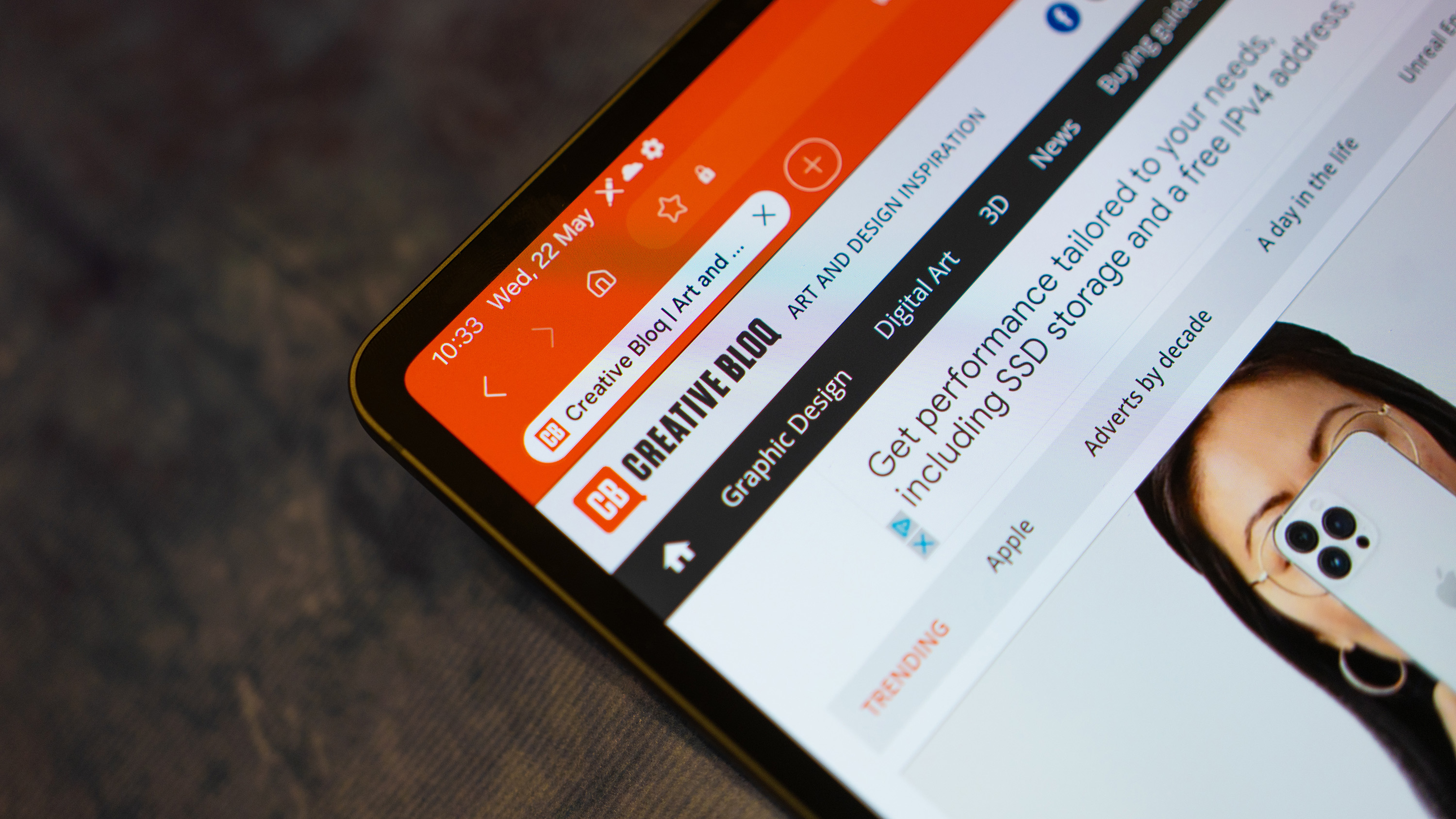
Who is it for?
Android lovers with the need for a stylus-driven interface for painting, and a bright and colourful screen for watching video. The tablet can become an excellent productivity tool, and Android is of course full of games and streaming apps, but we can’t help feeling that, for the price, you might as well get a laptop.
Should I buy the Samsung Galaxy Tab S9 Ultra?
Buy it if:
- You’re happy with Android software
- You want to draw with the stylus
- You want a big, portable screen
Don't buy it if:
- You just want to watch movies
- A laptop would fit your needs better
- You really want an iPad
Also consider
A laptop that thinks it’s a tablet, rather than the other way around, the Surface is very expensive but there's no beating the range of Windows software.
A big-screen OLED Android(ish) tablet that’s less powerful, but also a bit cheaper and can be found in a bundle with its own keyboard.
Already out of date by the time you read this, but the iPads Pro are best-in-class tablets with some great screens and creative software.
out of 10
Large and bright, with a wonderful screen, the Galaxy Tab S9 Ultra wants to be so much more than a media consumption device, and nearly manages it. There's a lot to like here for creative pros, but you have to be prepared to accept the Android software available.

Ian Evenden has been a journalist for over 20 years, starting in the days of QuarkXpress 4 and Photoshop 5. He now mainly works in Creative Cloud and Google Docs, but can always find a use for a powerful laptop or two. When not sweating over page layout or photo editing, you can find him peering at the stars or growing vegetables.
